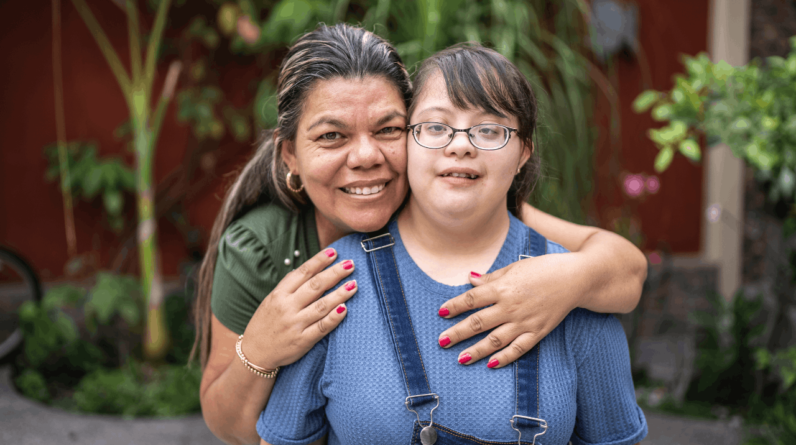
If you haven’t yet read Brené Brown’s lectures or books, you’re in for a treat!
Well-known for her research on shame and vulnerability, Brené Brown offers insight into the human psyche and what motivates us to act the way we do. I credit a lot of her work for understanding my own emotions and motivations in life.
Recently, I read her book Atlas of the Heart, and it was yet another perspective-altering read.
This book covers 87 emotions, helping us define what it truly means to be human. (And if you’re not a reader, it’s also available as an audiobook or you can even watch her Atlas of the Heart documentary).
If you really just want the gist, well, you lucked out because this article outlines my main takeaways (Note: This isn’t for the faint of heart! And yes, we do get deep.).
6 Lessons I Learned from Atlas of the Heart
Disclosure: As an Amazon Associate, we earn a commission when you click the link and finalize a purchase (At zero cost to you.). We participate in programs like these to keep providing our readers free daily motivational content.
Brené Brown has a way with words that simplifies even the most complex and untouchable topics, like our emotions. She breaks it down in a way that’s relatable and digestible.
Within the pages of Atlas of the Heart, I felt less alone and less shame. I discovered different emotions are completely normal and that understanding them can truly guide our paths and help us connect with others. So, without giving too much away, here are my main takeaways.
1. To be human is to feel a variety of emotions.
If you grew up in a household that rarely discussed how they feel in a healthy, caring, and open way, this book will help you feel seen. Like me, you might shy away from talking about how you feel.
Yet, Atlas of the Heart forces you to realize that talking about them isn’t bad. In fact, feeling these emotions is what truly makes us “human.”
As Brené Brown says, “To form meaningful connections with others, we must first understand ourselves.”
Knowing what emotions you’re feeling offers a way to deeply connect with your innermost thoughts and even your subconscious. When we are able to easily connect and understand ourselves, we can do so with others with more ease (more on this below).
2. Comparison and not addressing anger or disappointment hurt us the most.
We might already know that “Comparison is the thief of joy.”
Yet, we live in a society where we are constantly comparing ourselves to others. We see their highlight reels on social media and wonder why our lives aren’t as perfect as theirs.
Well, the truth is no one’s life is perfect, and it really is a highlight reel. Comparing ourselves to others will inevitably hurt us. And not addressing negative emotions, like anger or disappointment, will also hurt us.
These are the main ways we self-sabotage. By recognizing that comparison hurts us and that letting negative emotions fester also leads to our own self-inflicted hurt, we can take the necessary steps to work through these situations or avoid them altogether.
3. To address negative emotions, we need to get vulnerable.
Negative emotions often don’t “just go away.”
As Brené Brown states, “Vulnerability is not oversharing. It’s sharing with people who have earned the right to hear our stories and experiences.”
And the truth is we have to get vulnerable to tackle negative emotions, which is really really hard.
However, doing so with those you trust and that you know care about you can open you up to even deeper connections. We were never meant to deal with our negative emotions on our own.
In fact, evolutionary-wise, we are pretty much the same as our tribal ancestors who had an entire community to support them through the negative and tough times.
So, the takeaway here? Lean into the negativity with vulnerability. Do so with those you trust. Allow others to help you through.
4. Naming and recognizing our emotions can help us understand ourselves and others.
Brené Brown outlines 87 emotions! Yes, there are 87 (if not more) ways to name your emotions and how you feel. Putting a name to them makes them less scary in many ways. It gives it a label and helps us figure out a direction to go.
Naming them can also help us understand ourselves by discovering why we might be feeling this way. From there, we can uncover our greatest weaknesses and greatest strengths, as well as learn to foster empathy for others.
Related Article: Nonviolent Communication: How to Clearly Communicate What You Actually Mean
5. When describing your emotions, get specific.
Again, there are 87 different emotions here.
We can get ultra-specific regarding how we feel, which actually proves to be really helpful. Getting specific can, again, expand our depth of understanding of ourselves and others.
6. Vulnerability (and expressing our emotions) is essential for connection.
Brené Brown says, “When someone shares their hopes and dreams with us, we are witnessing deep courage and vulnerability. Celebrating their successes is easy, but when disappointment happens, it’s an incredible opportunity for meaningful connection.”
We all experience negative emotions. Yet, these negativities offer a great time to bond and connect. When we help each other work through these emotions and overcome them or simply support each other through the tough times, it, in a way, turns into a positive experience.
We connect, which is one of the essential pieces of being human and experiencing this life.
Related Article: Top 3 Self-Help Books You Need to Check Out
Don’t Shy Away From Your Emotions: Feel Them and Invite Them In
Instead of shutting the door on our negative emotions and giving them the leeway to come knocking whenever they want, we need to confront them.
Confronting them is best done in the presence of others, which can foster connection and help us get out of our own heads.
Feeling is truly what being human is all about. To fully embody the experience of life, we feel an array of emotions, and this isn’t something we need to feel shameful about.
Read Next: Habit Stacking & Showing Up: Building Better Habits One Step at a Time
Editor’s note: This article was originally published Apr 6, 2023 and has been updated to enhance our readers’ experiences.
Photo by Liza Summer








